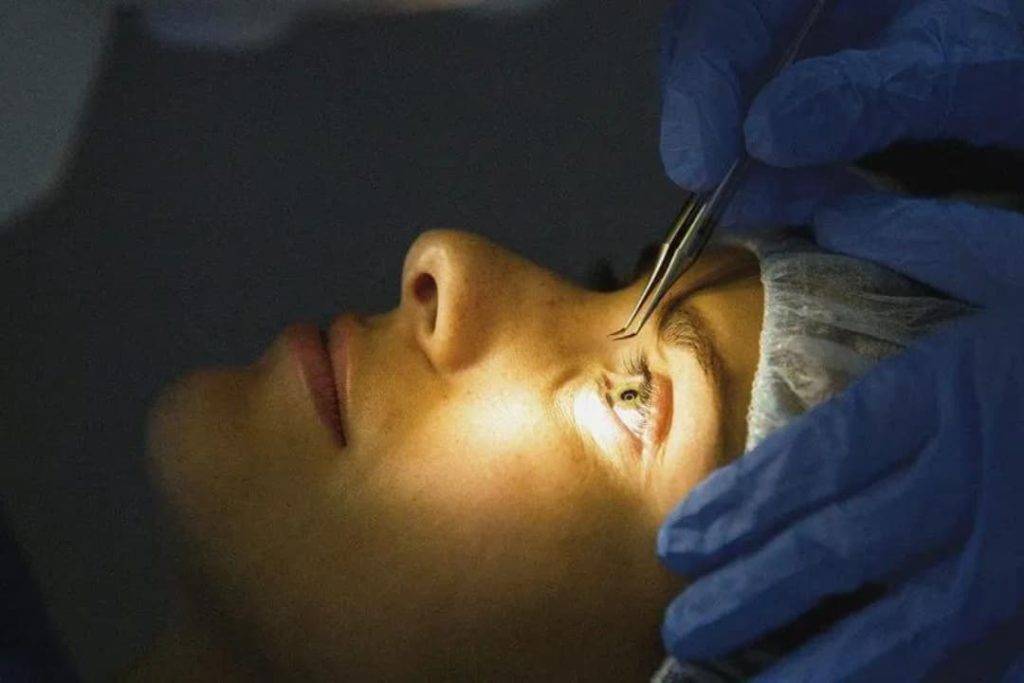Numerous eye diseases can be treated with laser treatment, which also helps to improve eyesight. Although procedures like LASIK are becoming more and more popular, not everyone is a candidate.
This blog will teach you about the various kinds of eye surgery, what laser vision correction surgery is like, and other information you should be aware of before having a procedure.
Table of contents
In laser treatment, certain body structures are cut, shaped, or removed using various intensities of concentrated light rays.
In comparison to traditional surgery, laser treatment offers a less invasive method for the delicate layers of your eyes. Your risk of problems and recovery time following laser eye surgery may both be reduced.
Although most people associate laser eye treatment with vision correction, it may also be used to treat other problems, such as:
Laser treatment can be used to repair refractive errors or vision problems such nearsightedness (myopia), farsightedness, and astigmatism (hyperopia)

As previously indicated, lasers can be used by medical practitioners to remove, remodel, or kill tissue in order to treat a variety of illnesses. Both laser eye treatment and laser-guided surgeries could be applied to these treatments.
Refractive laser surgery is the most used type of laser therapy for eyesight issues. This group includes the following three primary types of laser surgery:
Theoretically, laser vision correction is a lifetime procedure because it is permanent. Although the procedure fixes the current eyesight issue, whether you've had surgery or not, your eyes will continue to alter over time.
Therefore, even while the procedure can solve your initial visual issue, you might experience subsequent vision changes, especially if you had laser surgery when you were a young patient.
According to one study, even 5 years after having laser eye treatment for vision correction, 94% of patients were still able to avoid wearing contacts or glasses. To achieve the greatest outcomes, around 1 in 10 laser treatment patients require additional operations.
Laser treatment isn't right for everyone, just like any other procedure. Although laser treatments for diseases like cancer and retinopathy fall under a different category, laser surgery for vision correction is typically not advised for patients who:
You might not be able to receive a laser treatment at all if you have certain diseases. These consist of:
Your surgeon will take measurements of your eyes, assess your needs and any unique risks you may have before the treatment, and provide you with detailed preoperative instructions.
You should plan an outpatient operation and dress comfortably the day of surgery. Arrange for someone to drive you home afterward. Even though the length of the operation can change depending on the patient and the location, laser vision correction typically takes 30 minutes per eye.
What to anticipate during laser vision correction surgery is as follows:
Any type of treatment has a chance of complications, and laser eye treatment is no exception. Dryness is one of the potential side effects or consequences of laser eye treatment.
After laser eye treatment, severe vision loss or blindness is conceivable, but this is uncommon.
Your doctor might provide you a transparent shield or some other kind of eye protection after your laser procedure is finished. This shield helps protect your eyes from harm and prevent you from touching or scratching at your eyes.
Immediately following treatment, it's normal to have some discomfort, soreness, itching, or burning. Your doctor might recommend several drugs to treat your pain. After surgery, it's best to schedule some time at home to recover or maybe take a nap. Do not scratch or rub your eyes.
Your doctor will also provide guidance on when you can resume driving and other activities. Within 1 to 3 days of treatment, you should be able to resume the majority of your normal activities. Additionally, your surgeon will arrange a time for you to return for a follow-up examination.
Where you live, the surgeon doing the treatment, and the particular type of surgery you are having all affect how much laser eye surgery will cost you.
However, many insurance companies offer discounts or other promotional possibilities. You might be able to use funds from your health savings account or flexible spending account to cover all or some of the costs associated with your surgery.
Focused light beams are utilized by surgeons during laser eye treatment to remove or reshape tissue. Certain medical diseases can be treated using laser eye treatment, and vision issues can also be resolved. Not everyone is a candidate for laser eye treatment, and even after the procedure, it is possible for your vision to deteriorate over time.
Each individual's decision to have laser eye treatment is unique, and it is best made with the help of the surgeon who will be doing the procedure.
If you have any additional questions about your eye health, contact one of our opticals nearby. Ejones opticals, the best optical store in Kerala, is best fit for all your vision related worries. Do contact us for more details!

Eric Johnson is a Kerala-based eye wear expert and entrepreneur. He is one of the directors of Ejones Opticals, a company dedicated to providing the highest quality eye wear products at the most affordable prices. Eric has been in the eye wear business for over 10 years, and has a deep understanding of the industry. He is passionate about helping people look and feel their best through the right eye wear. Eric is committed to using his expertise to create stylish and functional eye wear that is tailored to each individual's needs.
Address: Unity Complex, Payyanur.
Tele: +91 4985205553
Mobile: +91 8921835063
Address: KSRTC Complex, Payyanur
Tele: 04985203554
Mobile: +91 8848195859